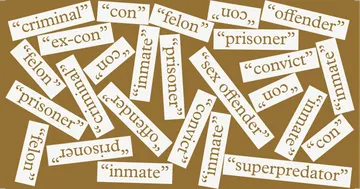This is The Marshall Project - Cleveland’s newsletter, a twice monthly digest of criminal justice news from around Ohio gathered by our staff of local journalists. Want this delivered to your inbox? Subscribe to future newsletters.
County Council advisors aim to investigate juvenile court
Members of Cuyahoga County Council’s Juvenile Court Advisory Subcommittee assembled for their first meeting this month, voicing concern over whether they’d be free to deeply probe the juvenile court’s practices.
Councilman Mike Gallagher, who chairs the council’s Public Safety & Justice Affairs committee, encouraged the new five-member committee to delve as deeply as needed but return with actionable legislative and budgetary recommendations.
Gallagher assembled the expert advisors following months of media reports and advocacy research on how Cuyahoga County leads Ohio in sending children, most of whom are Black, to adult court and prison through a process called bindover. The committee will formalize its areas of focus, but has already noted concern with bindovers and the juvenile court’s lopsided distribution of case assignments to certain private attorneys.
The committee’s inaugural members are:
- Juvenile Court Deputy Administrator Bridget Gibbons
- Jennifer Blumhagen Yarham, executive director of Applewood, the court’s largest contractor for the private placement of children and therapeutic services
- Retired Cleveland Police Commander Marvin Cross
- Former Common Pleas Judge Robert McClelland
- Retired Cleveland Municipal Court Judge Ronald Adrine
Cross expressed his skepticism, asking the council committee members if the juvenile court judges would accept their recommendations.
“From what I’m hearing, for lack of better words, it’s like everyone is in a pissing contest,” he said. “And that’s not going to help the kids.”
“I’m with Marvin,” said Adrine, who was elected to chair the committee. “I want us to … walk away from this process and say that we improved practice in Cuyahoga County and lowered the level of disparate outcomes … If we’re not going to be able to do that … I’ve got other things that I could spend my time on.”
Gibbons and Gallagher, who has spoken with Juvenile Court Administrative Judge Tom O’Malley, said the court is willing to cooperate. Gibbons is planning informational sessions on how the court operates for the next meeting on July 29.
— Doug Livingston
Got questions about the justice system? Ask us.
The justice system can be confusing. To ease the complexities, we’re starting a regular feature in our newsletter with our staff answering your questions on all-things criminal justice. That list includes policing, the jail and prison system, Ohio laws, prosecutors, and the courts in Cuyahoga County.
We welcome the chance to answer questions about how things work or are supposed to work. We take pride in busting myths, and making sense of stats and numbers.
Have a question you’d like us to tackle? Ask us. If we can answer it, we will. Submit questions here and find all the questions we’ve answered on our website.
To get things rolling, one reader asked about criminal record expungements after Ohio law changes last year:
Question: What’s the process for getting my conviction expunged?
Answer: Motions to expunge, or eliminate, criminal records must be filed with the judge who presided over the case, or the judge’s successor. Not all convictions are eligible to be expunged.
Once filed, the judge orders a background check to ensure the applicant is eligible and has no other pending cases, and that includes traffic tickets. The prosecutor’s office may file objections, but that rarely happens, said Cuyahoga County Public Defender Cullen Sweeney.
Finally, the judge grants or denies the motion, sometimes after calling a hearing.
In 2023, a new state law allowed for the expungement of criminal records that could previously be sealed, or kept from public view. Some convictions, including for violent crimes, crimes involving children or impaired driving can not be sealed or expunged. In most cases, there’s a waiting period — anywhere from six months to a decade — before a court can consider sealing or expunging a conviction.
Individuals can ask a common pleas or municipal judge to expunge multiple cases at once either pro se (on their own) or through an attorney. Pro bono lawyers charge nothing for low-income clients, who must pay only the $50 state filing fee.
If you need a lawyer and can’t afford one, the Cuyahoga County Public Defender’s Office last year processed 1,053 successful applications to seal or expunge felony convictions.
Legal help with sealing or expunging cases is also available from:
- The Legal Aid Society of Cleveland
- The Second Chance Reentry Clinic at Case Western Reserve University
- Pardon, Clemency, and Reentry Clinic at Cleveland State University.
- Legal Works Ohio
Around the 216
- The police chief in East Cleveland has resigned amid allegations of sending racist, antisemitic and homophobic texts, WKYC 3News reported.
- Capital punishment intersects with election politics, pushing campaigns toward a more aggressive tone, according to the Ohio Capital Journal, citing a report by the Death Penalty Information Center.
- A new study has found societal systems can be drivers of violent crimes, the Ohio Capital Journal reported. Racism, income inequality, neighborhood planning, gender-related social norms, education, employment, healthcare, housing and criminal justice are all systems that can contribute to violent crime, according to the study.
- The burden falls on Ohio drivers to prove one of the many statutory exceptions for those accused of violating the state’s new texting-while-driving law, Cleveland.com reported following a state appeals court ruling.
- Ohio continues to see more youth earning high school diplomas while serving time at juvenile correctional facilities, according to Spectrum News. The rates have increased since the 2020 pandemic.

